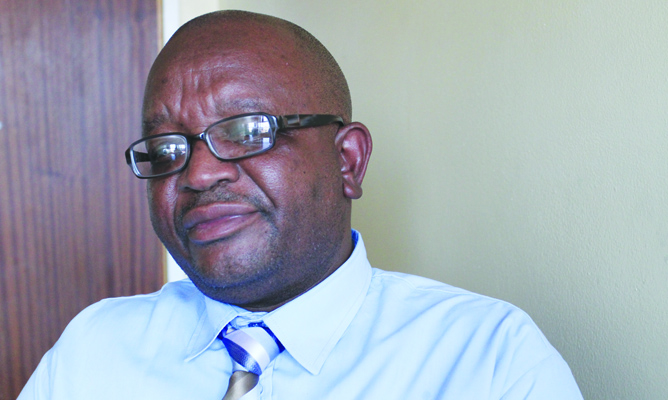
Institutions, professions, merchandise’s selling propositions, nations, empires and political parties, have to be dynamic to stay relevant. The old biological adage: “Learn, adapt or die”, holds true for all. Change is the only true constant. Facts today may not be facts or the truth tomorrow.
Okonkwo, the lead character of Chinua Achebe’s classic novel, Things Fall Apart, found that out the hard way. The critical issues of progressive dynamism and constant evolution, reform or change require dynamic leadership that produces positive, sustainable development.
In a presentation titled Leadership and succession; training the next generation, in the Great Hall of The People in Beijing in 2007, at the 67th Congress of the International Pharmaceutical Federation (FIP), Tina Wuliji, project co-co-ordinator at the FIP, had a few definitions on succession and leadership that could be relevant to Zimbabwe as President Robert Mugabe inches towards his 92nd birthday.
Succession, she said, is the last challenge of leadership, the challenge of letting go, moving on and planning for finishing up; it is all about sustainability. Quoting as she did Hargreaves and Fink, she added: “Sustainable leadership matters, spreads and lasts.” It is a shared responsibility that does not unduly deplete resources — an important point to note for Zimbabweans. It cares for and avoids exerting damage on the surrounding environment.
“Social entrepreneurship”, which is what governments try to do, is also important in addressing social needs. It is a field that brings different ideas from academics and practitioners (government included), essentially around caring and creating patterns for social change. It is a similar concept to entrepreneurship but the focus is not on making money, but on social improvement. It is not charity. And so should (have been) the land reform programme.
On leadership succession, she noted that — as Zimbabweans now very well know — it is an “emotionally charged area. People experience the emotions of expectations, apprehension, abandonment, loss and (even) relief”. As a result, she concluded, sustainable leadership needs to plan for succession.

“We need to regulate the rate and frequency of succession and avoid cynicism (as was evident in the State media columnist’s installation last Saturday) from succession fatigue,” she said, adding: “we should prepare and groom leaders and provide continuity.” This should have been well-received by the Chinese who were hosting the conference. They are the masters of succession planning at party and national level.
During the course of 2016, President Xi Jinping’s successor will be known as five members of the seven-strong Standing Committee of the Politburo retire due to age, to be replaced by five younger ones of largely Xi’s own choice, well ahead of the end of his first term. Two of the young Turks will replace President Xi and his Prime Minister Li Keqiang, when the prescribed 10-year two-term period ends. The West and the Indians may claim superior systems with their democratic, rather than autocratic, touch to leadership change.
- Chamisa under fire over US$120K donation
- Mavhunga puts DeMbare into Chibuku quarterfinals
- Pension funds bet on Cabora Bassa oilfields
- Councils defy govt fire tender directive
Keep Reading
“Distributing leadership” was also defined and noted to be important. “All our eggs should not be placed in one basket.” Making a lasting legacy of leaders requires input and shared vision, participation and leadership of others. “Shared leadership”, she explained, is also important. No one institution or person can do everything without help.
Finally, generation and leadership renewal were added to the list of definitions. “We must ensure leaders do not burn out. We must take care of leaders. Leadership that drains leaders dry will not last.” The sentiments apply equally well to the Zimbabwean leadership, where the issue is: Can the ruling party that is displaying all the signs of both succession phobia and fatigue rise to the occasion and deploy, albeit belatedly, sustainable leadership able to implement leadership succession, both in the party and in the country?
The jury on that may still be out. Unlike for China, there seems to be no shared enduring vision as factional positions on the indigenisation and Economic empowerment Act have emerged, of all places, in Cabinet. Neither is there one vision on how to have executed or to conclude the land reform programme. There is none too on fiscal management or on the country’s direction to, and policy on international relations. On issues critical to economic recovery, it seems to be the proverbial case of every donkey loves to hear itself braying.
Inevitably, under the circumstances, there is no shared leadership. There is no evidence of sustainable leadership or signs of leadership renewal. Rather than social entrepreneurship driving strategy, the “love of money — the root of all evil” — may be the primary motivation in most politicians’ minds. It could not be more different from the Chinese model of the past three decades, or contemporary Western models. The debilitating post-Soviet Russia oligarchic model and the equally catastrophic South Africa BEE (Black Economic Empowerment) model, both prone to abuse, seem regrettably, to be the chosen, albeit rogue, beacons.
The Chinese, like the West, took to heart the seven principles of leadership as enunciated by Hargreaves and Fink. Strategy is clear, simple and unifying. It stands scrutiny by academics and critics. It delivers positive social change. The leadership’s position on social entrepreneurship “matters, spreads and lasts”. Li, the Chinese Prime Minister, says the strategy has remained the same over the past 30 years. It rallies around reform, openness and international co-operation, underpinned by innovation. For America, President Barack Obama is likely to put innovation first, followed by the others. The future of America, according to the US President, “depends on fixing (reforming/transforming) our politics”.
Globally, the keys to progress are basically the same. The presence or absence of a shared vision and sustainable leadership is what make the difference. Without a unifying vision, the people perish.
l Tapiwa Nyandoro can be contacted on [email protected] or [email protected]











